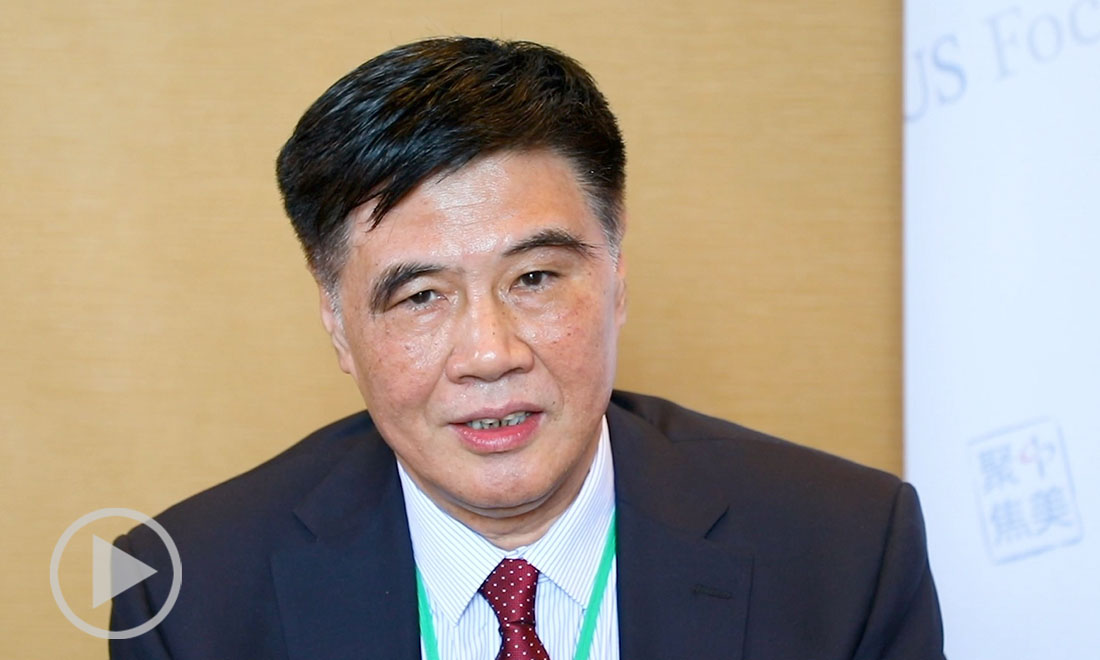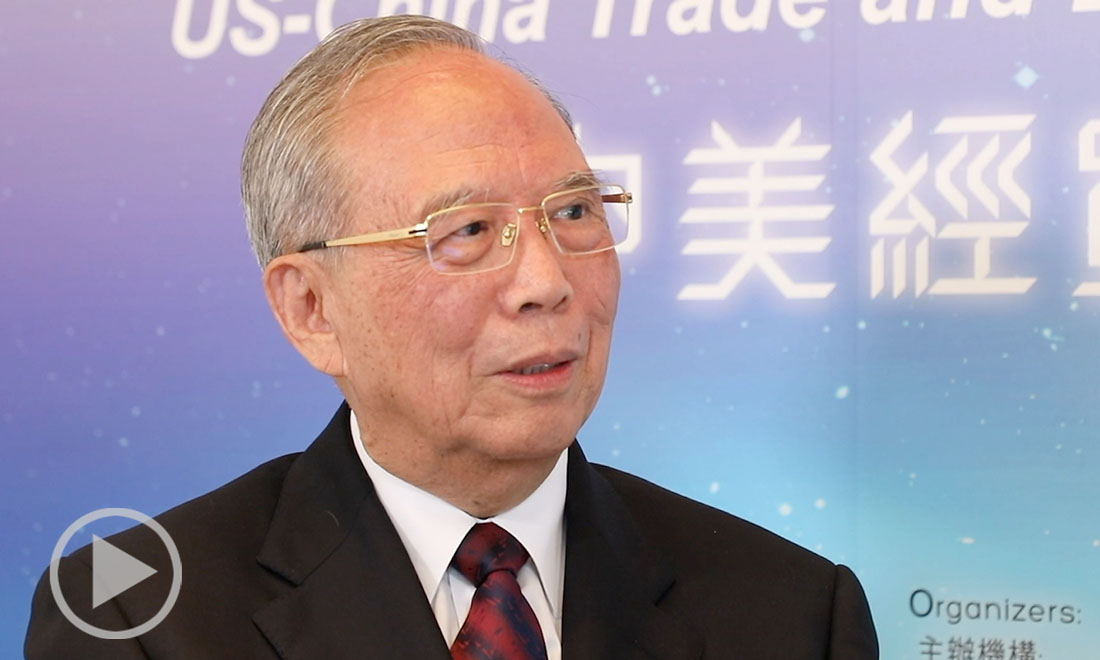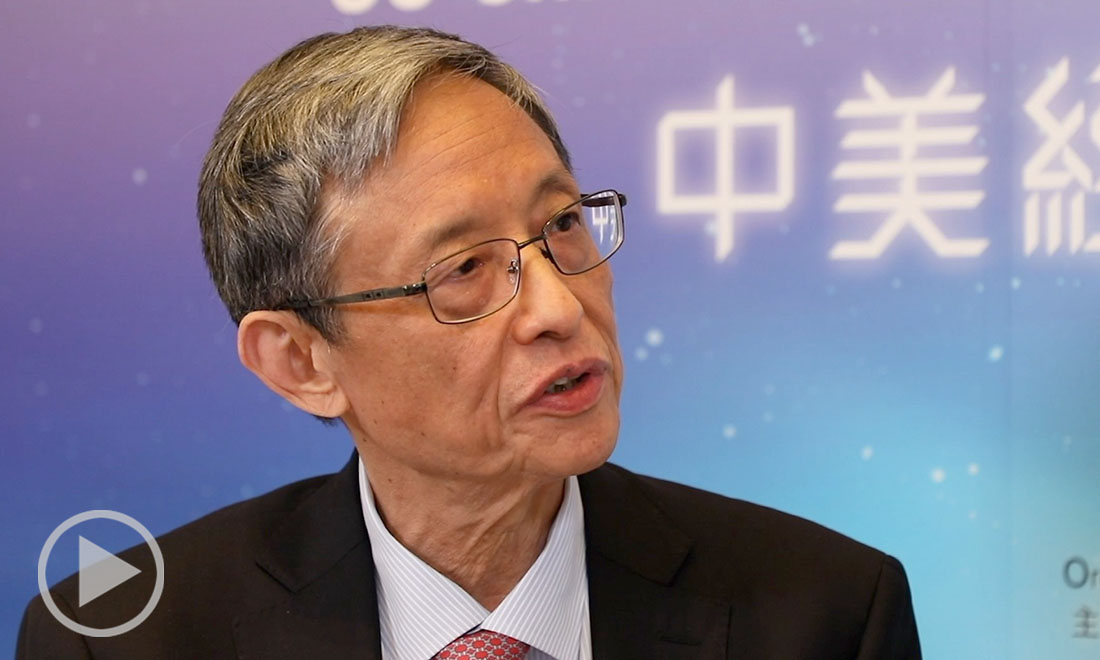Dr Fu Yuning is the Chairman of China Resources Holding and a member of the National Committee of the 12th Chinese People's Political Consultative Conference (CCPPCC).
In this interview with James Chau, he talks about the transformed role of state-owned enterprises in China, and lends his insight on how foreign-owned businesses can continue to leverage opportunities in China, especially around healthcare.
This interview was recorded at the US-China Trade and Economic Relations Forum in Hong Kong on 9-10 July, 2019.
James Chau: Dr. Fu, let's talk about Chinese state-owned enterprises. The Americans say that they have an unfair advantage because they're so well supported by the government in China that they don't really need to be that competitive. What do you say to that?
Dr. Fu Yuning: After the last 40 years of reform, China's corporations have transformed entirely, as we [went from] collectively owned enterprises to [what we have] now. Most of the enterprises are [funded by] private loans and only a very small number exist for last 45 years. SOE have almost entirely transformed from [being] government-supported to market-oriented and [competing] in the commercial world, behaving very much like a commercial enterprise. Today, "state-owned" only means the government is a shareholder. The interaction between the SOE and the donor [represents] the shareholder and the company's relations.
JC: So it's a completely transformed picture as you describe. If we look at the last 40 years, China has changed economically beyond recognition. What would you say to businesses that may be interested in coming into China at this time? What's China going to look like for them in say, two to five years from now?
FY: I think from the international investors' point of view, the Chinese economy after 40 years [experienced] rapid expansion, development, and modernization. But still, there are a lot of opportunities, and the foreign enterprises will still have a niche in the area where the services, the high value-added parts, I think they will still find room where they can do their business.
JC: Everybody wants to be part of this China or America story because they're the two biggest economies today. But China in particular is still an accelerating economy. What are some of the prime areas or opportunities for them to leverage? You mentioned services for example, but how can we break that down?
FY: I think health care will be [an important] one as China becomes an aging society. Medicare and pharmaceutical research is [still] underway, and China is still behind the West, in particular, behind the US. We would hope very much that the healthcare industry can draw on the experiences [of] advanced economies, and that the business community would find that China [to be] a very interesting, attractive market.
JC: They're all still concerns, of course, from the business community. You mentioned that doing business in China is not straightforward and can in fact be very complex, even expensive. The relationship with the United States is changing as we speak. What would you like for this new era of relations, no matter what happens after Osaka and the G20?
FY: Let us hope that these trade frictions, or trade fight, will not go on for too long. I think it is hurting both sides, and in particular hurting the consumers. Today, [within] the Sino-US economy and the businesses, so much is coupled together and although China has achieved remarkable progress- in many industries today China is number one- but if you look closely, with many number one industries, it was [achieved through] combined efforts with China and the West, and many [instances] with the United States. So I hope the two governments will not really stop the exchanges and the cross-border investment because the cross-border trade is benefiting both sides and both sides' people.
JC: Obviously there is a positive tone in your narrative. I wonder if you are excited as well, because when countries push each other and when they're well resourced like China and the United States, that's also an opportunity for upgrading and for innovation. Do you think we'll see that with China and what it may offer the world? Perhaps, despite the tensions that exist right now, it could lead to a far richer outcome for all?
FY: I would think so. International collaboration has been ongoing for the last 20 or 30 years and that in particular has brought a lot of economic progress. Technological development with China's big market [is] where the US innovative research work, would be the most beneficial to everybody if it can be combined. Of course, if there is a slow down in the exchanges and collaborations, Chinese companies will pursue their own research and probably put more resources into the R&D side, and they also hopefully will trade in some of the progress as well. But I still am a strong believer in global collaboration. Hopefully everybody would see the benefit of that.
JC: The world is bracing itself for a global society of 5G and the digital era. Even an aging society, but hopefully a healthy one as well. Dr. Fu Yuning, thank you very much for your insights on this.
FY: Thank you.




